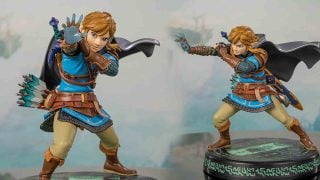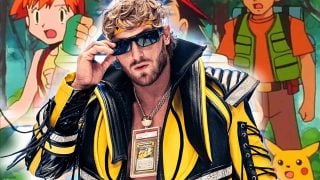Welcome to the Character Column! Each week, I’ll be taking a look at a different character from Nintendo’s long and esteemed history, and I’ll analyze what makes them interesting, nuanced, or just plain memorable. Whether they’re heroes, villains or NPCs, I’ll explain why they deserve respect or love from the fanbase and a place in video game history.
Last week, we covered Earthbound’s Photographer. This week, in celebration of the release of Tokyo Mirage Sessions ♯FE, we’ll be covering a character from the Fire Emblem series!
Between me and you…
First, let me gush a bit: I absolutely adore FE. While most people are only familiar with the most recent 3DS titles, the franchise has been remarkably great over its 26 years of existence, even if a couple of the oldest titles haven’t aged wonderfully. And a great part of their lasting appeal is the expansive and varied cast of characters that populate each title – from troubled lords like Leif and Micaiah, to fascinating villains like Arvis and Ashnard, to fun side characters like L’Arachel and Henry, the series boasts hundreds, maybe even thousands of characters by this point. Heck, this could easily be the “Fire Emblem Character Column” if I wanted it to be, and it would be a long, long time before we ran out of material.
Of all the Fire Emblems, my absolute favorite would have to be the seventh title in the series – just known as ‘Fire Emblem’ in the west, but I’ll be calling it Blazing Sword (the translation of its Japanese subtitle) or FE7 throughout the piece for convenience’s sake. The game simply has so many characters I love: Nino and Jaffar, Serra, Matthew, Guy, Rath, Dart, Hawkeye… not to mention the villains, side characters, and all the others I’ve missed. But the core of the game lies in its three protagonists: Lyn, Eliwood, and the subject of today’s topic – Hector, brother to Marquess Ostia and one of the most powerful lords in FE history.

Speak loudly and carry a big axe
Given the copious amounts of text and story in Fire Emblem games, there’s a lot to dissect here. But to the uninitiated, Hector is just plain awesome. There are myriad reasons why, but a lot of his character traits – good and bad – are exemplified in the very first scene in which he shows up. Hector first appears in the Chapter 12, the second chapter of Eliwood’s Story (the first ten chapters taking place during Lyn’s Story), alongside his consorts Serra, Matthew, and Oswin. Upon hearing of Eliwood’s search for his father, Hector has gone to meet with him, only to find his friend in the midst of battle. Observe:
Hector: “Hey! What’s going on over there? Looks like some rough business. You! Soldier! Are you just going to stand there and watch?”
Soldier: “Who do you think you are? This is Santaruz. What occurs here is no affair of any foreign lordling!”
Hector: “I believe I’m going to have to disagree with you. You see, the man they’re attacking happens to be a friend of mine.”
Soldier: “A friend? What? …Urrrgh!!”*while difficult to tell with limited GBA graphics, Hector fells the soldier*
Hector: “Sorry, but I’m in a hurry.”
Serra: “Ewww! That’s terrible! I loathe violence!”
Matthew: “Nicely done, my lord! You’re a fighter born.”
Oswin: “I cannot condone resorting to force so quickly…”
Hector: “Chastise me later, Oswin. First, we deal with these brigands! Come! We must help Eliwood!”
Oswin: “Help Eliwood? Sounds like a convenient excuse for more violence.”
Hector: “Oswin!”
Oswin: “Yes, yes. I’m coming!”
Hector’s main character traits are established right off the bat – he rushes to the side of his friends, and he doesn’t care what gets in the way. He also has a propensity for violence, which Oswin points out immediately, but Hector discards in favor of helping Eliwood. Thus, Hector’s main qualities – his brashness, his strength, and his loyalty – are delivered in one succinct and sweet scene.

And, as the journey continues, these traits are reinforced. Whether dealing with insurrectionists, defending Lycia, or simply bickering with friends, Hector prefers a straight path rather than one lined with manners and procedures. He and the other two lords play off of each other as foils, in one of the best dynamics the series has ever had. Eliwood, while courteous and gentle, often faces indecision and reluctance, and he can be too trusting. While Hector never wavers in his path, his boldness has an equal chance of getting him into trouble, and often comes across to people as boorish and rude. Balancing them out is Lyn, who is often dignified and sensitive, but is also prone to bouts of pride and righteous anger. Part of the strength of each of these characters lies in each other, and the theme of camaraderie plays out well without ever feeling ham-fisted.
Hector’s character is also represented in his stats. Some classes like thieves and archers need to be careful about their positioning, so as not to attract the enemy’s wrath. Not Hector. Park him on a fort or a forest with his iconic Wolf Beil in hand and watch him mow down knight after knight. While he needs to watch for magic, his straightforward, aggressive style of character is reflected well in gameplay quite well.

Spoilers for Fire Emblem Blazing Sword follow this point! Read at your own risk!
While a main lord, Hector acts often as a peripheral character to Eliwood’s tale. Whenever Eliwood is in the midst of strife – whether after losing his father, struggling to fight Nergal, or having accidentally killed his love Ninian – Hector is there, to bolster his friend up and provide him comfort. When Eliwood is crippled by his own doubt, Hector is the one who lifts him up on his shoulders (like he did with Nils) and carries him forward. In fact, when you face Nergal at the end of the game and attack him with Hector, he says this:
Hector: “Nergal!”
Nergal: “So you’ve come, Hector of Ostia. Your existence itself was my greatest miscalculation. If it had only been Eliwood, this could have been over. So, my little miscalculation, I will erase you. And leave no trace remaining.”
The villain of the game himself admits to Hector’s importance! Whether he’s referring to Hector’s force or his encouragement towards Eliwood (or both), it’s clear how instrumental he is to the narrative as a whole, even if it doesn’t revolve around him.

And all of that would serve to make Hector a great character. But we’re not done yet. In fact, we’ve barely just begun.
Another side, another story
Upon clearing the main game of Blazing Sword for the first time, an additional mode known as Hector’s Story unlocks. It’s a little bit like FE Fates: Revelation, except it doesn’t cost an extra $20, and the plot actually makes sense.
Okay, in fairness, 90% of Hector’s Story is very, very similar to Eliwood’s Story gameplay-wise. Almost all the maps are recycled with different enemy positions and habits. There are a few new levels, a few new characters, and a couple of new side quests. (If you were to tell me you got to Chapter 19xx without a guide I would not believe you.) It’s essentially a way to replay the game with a fresh coat of paint. And while that’s all well and fun, the most interesting thing about this new story is, as expected, the fact that it’s told from Hector’s perspective.

Here we see Hector set out as his brother, Marquess Uther of Ostia, struggles with illness and taking the throne. While Hector is obviously concerned for his kin, he’s also worried about Eliwood, and sets out. While all the story beats are the same, there are additional and occasionally changed scene, most involving Hector’s interactions with Oswin to find out about his brother’s condition, or his various talks with Lyn. The greatest of these conversations, in my humble opinion, takes place aboard the pirate ship.
Lyn is upset because bandits killed her parents, and now the party is relying on a similar sort to search for Eliwood’s father. Hector says that these pirates don’t look like such bad people, and Lyn snaps at him, explaining the horrible events that happened to her family and her tribe. And just when her recount reaches the terrible climax, this happens:

*Hector turns away*
Lyn: “Hey!! What–What are you doing?”
Hector: “You’re a strong woman, Lyndis. I thought you would not want anyone to see you cry.”
Lyn: “You’re such a fool! If you think that’s what I want, then why not just leave!”
Hector: “I… I lost my parents, too.”
Lyn: “You…”
Hector: “It was illness that took them. Nothing like what happened to you. Still, I wanted nothing more than to cry like a little baby. And yet, I couldn’t cry… Not in front of others. And when I was alone, I found I still couldn’t. So… I simply thought… I don’t know…”
Lyn: “You really are a fool. That’s no way to… You can’t just… … … …”
Hector: “……”
For one so massive and often blunt, Hector is surprisingly sensitive. He shows a lot of vulnerability in this conversation, opening up about the pain of losing his parents, as well as the regret of not being able to cry about it. It’s a conversation with many holes, and thus a lot of room for interpretation, but either way it gives Hector a lot of depth that he didn’t have previously. Not to mention, the fact that he lost his parents to illness shows why he’s so concerned for his brother’s condition – he doesn’t want him to go out the same way.
Unfortunately for him, this is a case of foreshadowing.
It doesn’t happen for quite a long time – over a dozen chapters later, after many other story events have come and gone. But eventually, noticing the silence of Oswin and many guards around Ostia, Hector confronts him about the truth, having discerned it for himself – that his brother has died, leaving him lone heir to Ostia. His emotions run high, and he angrily storms out on Oswin, as a new wrinkle has been added to the narrative.

The amazing thing about this plot twist is that it’s barely alluded to in Eliwood’s Story at all – many would never play down this path and realize that Hector was going through his own conflicts alongside Eliwood. And more of Hector’s character shines here, in how he desires not to burden his friends with his problems… yet they still provide a shoulder of comfort in their own ways. As he and Lyn helped Eliwood through his strife in Eliwood’s Story, so too do Eliwood and Lyn help Hector out here. Eliwood tells Hector not to blame himself for Uther’s death, and Lyn makes him swear (through her tears) to not die.
So what does all this say about Hector’s character? A whole lot. There’s a lot to admire about Hector and his foibles, but he has two primary downfalls – his tendency to place all of his and his friends’ burdens on himself, and his propensity for violence. The former is definitely the one that takes center stage, but the latter is also reflected on, as seen when Hector receives the legendary axe Armads from the spirit of Durban:
Durban: “You desire strength? Then prepare yourself. Once you have gained such power… Your life will not end in a comfortable bed. You will die on the battlefield. In the savage garden of war’s bloody delights.”
Hector: “… I don’t care. I will help my friend. That’s why I’ve come this far. Armads! Your power! Lend it to me.”
This promise comes true, as Hector dies very early on in… er, the previous game, Fire Emblem Binding Blade. Hector falls to Zephiel and the armies of Bern, and in Roy’s arms he begs him to protect Lilina (his daughter) no matter the cost. It’s a gut-wrenching scene, and while that game was made earlier (and thus before FE7 properly established much of his character) it’s still a good moment.

The great lord
There’s a lot to love about Hector’s character. He’s unfailingly loyal, often to a fault. While regularly ill-mannered, he’s not dumb, as shown by his silver-tongued insults and surprising amounts of sensitivity. He’s strong and straight forward, which sometimes puts people off, but you never feel hints of shadiness or dishonesty from him. And he does something truly rare and difficult for characters to do – his greatest strengths are also his greatest weaknesses, exposing his character flaws and making him seem all the more human for it. And heck, we didn’t even touch his supports! Those only reinforce those great qualities mentioned above.
But perhaps the greatest thing about Hector is how different he was at the time. Before his advent, most FE protagonists adhered to the ‘noble prince’ archetype that Marth had established long before. They weren’t all the same – Sigurd had bouts of boldness, Leif had multitudinous struggles of confidence, and Eliwood (as we’ve seen) was able to play off his friends. But Hector was a decidedly different take on FE protagonists, and insanely popular to boot. So much so, that the creators have gone on record as saying he was the main inspiration for later lords like Ike and Chrom, very well regarded characters in their own right. The fact that he set a course for the series to characterize its protagonists in the future shows the breadth of Hector’s influence.

All of that above is why Hector isn’t just my favorite lord in the series, but my favorite Fire Emblem character period. Exuding awesomeness, honesty and devotion at every turn while also having very humanistic and down-to-earth qualities make him a character that will truly stand the test of time.
And, I mean, he can also do this:

That helps.
Stay tuned
Thank you for reading this extra-large edition of the Character Column! A size befitting a man of Hector’s stature, to be sure. Tune in next time, where we’ll be talking about Zero. Which Zero, you ask? You’ll have to wait and see! Until then!
Leave a Comment“I don’t expect you to understand. You’ve forgotten what it means to be human! Nergal! My connection to you… it’s over! I’m finishing everything up right here!!”
– Hector, during the final battle with Nergal in Hector’s Story


